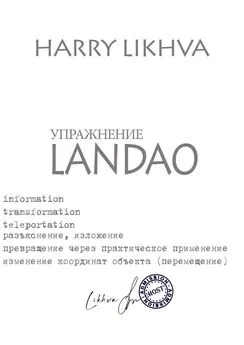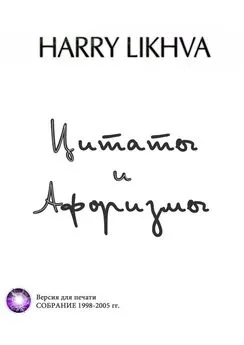Harry Turtledove - Give me back my Legions!
- Название:Give me back my Legions!
- Автор:
- Жанр:
- Издательство:неизвестно
- Год:неизвестен
- ISBN:нет данных
- Рейтинг:
- Избранное:Добавить в избранное
-
Отзывы:
-
Ваша оценка:
Harry Turtledove - Give me back my Legions! краткое содержание
Give me back my Legions! - читать онлайн бесплатно полную версию (весь текст целиком)
Интервал:
Закладка:
“Mostly!” Arminius seized on the word like a drowning man grabbing hold of a log. “That doesn’t mean they’re perfect. They aren’t! No one is smart all the time.”
“No one is smart all the time,” his father agreed. But he wasn’t looking at the Romans as they built their fortress-camp right in the middle of Germany. No - he was looking straight at Arminius.
The younger man’s cheeks and ears might have caught fire. “We can beat them,” Arminius insisted. “We have to beat them. If we let them go on the way they’re going, they will enslave us.” He stuck out his chin in defiance: of Sigimerus, of the Romans, of everything in the world that dared opposed his will. “Go ahead. Tell me I’m wrong.”
Sigimerus sighed. But this time he looked at the Roman soldiers chopping and sawing and hauling and digging and building. He sighed again. His face said a great many things, none of them happy. All he said, though, was, “If we try and we fail, Germany wears the chains of slavery forever.”
“She wears them if we don’t try, too,” Arminius answered. “She’s bound to wear them then. But if we fight and win, she’s free, free forever!”
His father looked at the Romans once more. This time, he said not a word.
Quinctilius Varus didn’t like to sit up when he dined, but even a chair with a back was a luxury in Mindenum. A couch - a whole set of couches - would have made these bluff, straightforward soldiers grumble. Varus knew that, no matter how little he cared for it. He also knew he had to get along with the officers. It was not only that they were the men who carried out his orders. If he didn’t stay on good terms with them, he had no one but his slaves to talk to. In this straitened place, that wasn’t enough.
Under the chief cook’s watchful and anxious eyes, two kitchen slaves - hulking Germans - carried a covered silver tray into the tent doing duty for a dining hall and set it on the table. One of them protected his hand with a big of rag as he grabbed the cover’s handle and pulled it off. Steam and savory smells filled the tent. Varus and the other diners exclaimed in delight. A couple of the soldiers even clapped their hands. What could you expect from such people?
Relief in his voice, the cook said, “Roast boar, your Excellencies, with forest mushrooms, on a bed of cabbage and turnips.”
“I’d never get bored with that,” Lucius Eggius called out.
For a moment, Varus heard it as a hungry man’s commonplace. Then he caught the pun. He sent Eggius a look half respectful, half reproachful. Was the wordplay just luck, or was there more to the officer than met the eye?
Varus decided he didn’t have to worry about it now. He was the highest-ranking man here, so he was entitled to feed himself first and take the choicest gobbet. He did, seizing a smoking chunk of pork generously outlined with dripping fat. His mouth watered.
It tasted as good as it looked and smelled. Varus could imagine no higher praise. Smiling, chewing, he nodded to the cook. That worthy bowed in delight.
Vala Numonius chose next. The cavalry commander’s right hand closed on a slice even bigger and fatter than Varus’. “Good,” Numonius said with his mouth full. “Wonderful!” The cook beamed.
One by one, in order of rank, the Roman officers fed themselves. “Begging your pardon, friends,” one of them said as he took food with his left hand.
“We know you, Sinistrus,” Varus said. The nickname told how thoroughly left-handed the legionary was. His right hand was as clumsy and useless as most people’s left - good only for wiping himself. Varus had known a few other men like that. They always apologized when they fed themselves with what was usually the wrong hand.
The mushrooms were different from the familiar Italian varieties, and also different from the ones Varus had eaten in Syria. Not better or worse, the governor judged, but different. One of the officers spoke to the cook: “You tried these out on beasts before you tried them on us, right?”
“Oh, yes, sir!” the cook said, so quickly that the legionaries laughed.
“Some good news, anyway.” Lucius Eggius’ voice was dry. The Roman officers laughed again. So did Quinctilius Varus. He liked mushrooms, but he also knew you could make mistakes with them. And a mistake with a mushroom was much too likely to be the last mistake you ever made.
Another officer raised a winecup. “Here’s to putting Germany under our thumb once and for all!”
Varus was glad to drink to that toast. The rest of the diners followed his lead. All the same, he heard somebody mutter, “What I’d really like is to put Germany behind me!”
He looked around, trying to make out who’d spoken. But he couldn’t. He didn’t recognize the voice, and no one’s face gave him away. Besides, how angry could he get? He would have liked nothing better than going back to Gaul, going back to Italy, going anywhere but here.
No matter what he would have liked, he had to stay. “By the gods, gentlemen, we will whip this province into shape!” he declared. “And if we have to resort to the lash, that’s what we’ll do. The Germans need to know who their rightful masters are.”
“Hear, hear!” Several officers loudly supported him. Others, though, sat quietly, as if trying to pretend they hadn’t heard what he said. Most of the ones who made a point of agreeing had come north with him the year before. Most of the ones who stayed quiet had been fighting the Germans longer than that.
Were the newcomers too hopeful? Am I too hopeful? Varus wondered. Or were the veterans of this frontier jaded and frustrated because things here hadn’t gone better? Quinctilius Varus decided it had to be the latter. The Germans had stayed pretty quiet even though he’d started accustoming them to taxation. Why wouldn’t they turn into proper Roman subjects if he kept on traveling the road he’d begun?
And he was sure Augustus wouldn’t have sent him up here if the job weren’t doable. If anyone had ever had an instinct for such things, Augustus was the man. The veterans had made a hash of things, that was all, and so they built the Germans up to be bigger and fiercer and stubborner than they really were.
He’d made progress. He would make more. If Augustus thought he could do it, he did, too.
Sometimes the Germans would attack a Roman army without the slightest hesitation. Sometimes a couple of Roman soldiers could amble through the countryside and get nothing but friendly treatment. You never could tell.
Caldus Caelius and two or three buddies were ambling through the countryside now. The legionaries weren’t stupid about it. They’d told their friends back at Mindenum where they were going. If anything happened to them, the legionaries would make the barbarians pay.
And the Germans around Mindenum had figured that out. Knocking off a Roman soldier here was more expensive than it was worth. Caelius and his friends wore helmets, and swords on their belts - you didn’t want to beg the Germans to jump you - but he wasn’t what you’d call anxious.
Hard to worry about anything with spring burgeoning all around. New bright grass pushed up out of the ground. New shiny leaves were on all the trees that weren’t conifers - and in weather like this, mild and mostly sunny, you could ignore the gloomy needles on the pines and spruces. Flowers blazed across the meadows like stars in the night sky. The air smelled sweet and green.
Birds sang in the trees, throwing out music for anyone who walked by. “Germany wouldn’t be a bad place,” Caelius remarked, listening to a blackbird’s clear notes, “if it stayed this way the year around.”
He came from a farming village south of Neapolis, down near the toe of the boot. He knew the difference between summer and winter there: winter was the rainy season, and it did get cooler than the blazing summer heat. But it rarely snowed, and far fewer trees lost their leaves than they did here. Life down there had a more even pace. He missed it.
One of his friends peered into the woods. “Germany wouldn’t be a bad place,” the other legionary said, “if it didn’t have Germans in it.”
All the other Romans laughed. Caelius wondered why. “You’ve got that right, Sextus,” he said. “Only way to get rid of them is to kill ‘em all, though.”
“Don’t remind me,” Sextus said. “And how many of us would they bump off before we finished with ‘em?”
The sun ducked behind a cloud. Some of the brightness would have gone out of the day even if it hadn’t. “Too stinking many,” Caelius said. “They’re tough - no two ways about it.”
A rabbit bounded across the trail and disappeared into tall grass. Sextus pointed after it. “The barbarians hide just like that, the buggers.”
“There’s a difference,” Caelius said.
“What’s that?” His friend liked being contradicted no more than any other mortal.
“When rabbits hide, they don’t take along spears and swords and bows,” Caldus Caelius said.
Sextus grunted. “Well, so they don’t. And all kinds of things eat them. I wish something would eat up the Germans.”
A local, wrapped in his cloak, rounded a stand of trees up ahead. “Watch your mouths, boys,” Caelius said quietly. “Some of these bastards know Latin. We don’t want to be calling them dogs to their faces.”
“Why not?” another legionary demanded. “It’s what they are.”
“But the officers’ll have our guts for sandal straps if we start a fight for no reason,” Caelius said. The other soldier, a younger man - not that Caelius was very old - muttered under his breath but subsided. Caelius showed the German up ahead a raised, empty right hand.
Slowly, the native returned the gesture. Even more slowly, he came toward the Romans. He was tall and proud and skinny. His cloak had a bronze clasp in the shape of a beast. The creature’s eye was of stone, or perhaps glass paste. That said the German was a man of some substance, though probably not a chief. A real leader would have had a gold or silver clasp for his cloak, and would have worn breeks under it, too. This fellow’s hairy shanks stuck out below the bottom of his cloak. His spear was made for thrusting; it was longer and stouter than the javelins Caelius and his friends used.
“We have no quarrel with you,” Caelius said in Latin. Then he said what he hoped was the same thing, using his scraps of the Germans’ language.
“No? Then go back where you came from.” The barbarian’s Latin wasn’t much better than Caelius’ command of his language. He looked at his spear. He looked at the Romans. Several of them and one of him. If he started a fight, he’d regret it - but not for long. And he’d never do anything else that stupid afterwards. With a sigh, he nodded. “I have no quarrel with you - now.”
Caldus Caelius gave his pal a look that said, See? He might have understood you after all. The one the other Roman returned said something like, Yes, Mother. They grinned at each other. Caelius gave his attention back to the German. “There’s a little village down this path, isn’t there?” he said.
“Why you want to know?” From the anger and alarm in the native’s voice, he was wondering whether the legionaries aim to burn the place first and then rape the women or the other way round.
“I thought maybe we’d buy some of that, uh, beer you people brew,” Caelius answered. He liked wine better - what Roman in his right mind wouldn’t? By all the signs, the Germans liked wine better, too, when they could get it. But all the wine that came to Mindenum started from Vetera. There was usually enough to give each legionary his fair share, but not enough to get drunk on. And so ... Beer would do.
Читать дальшеИнтервал:
Закладка:







